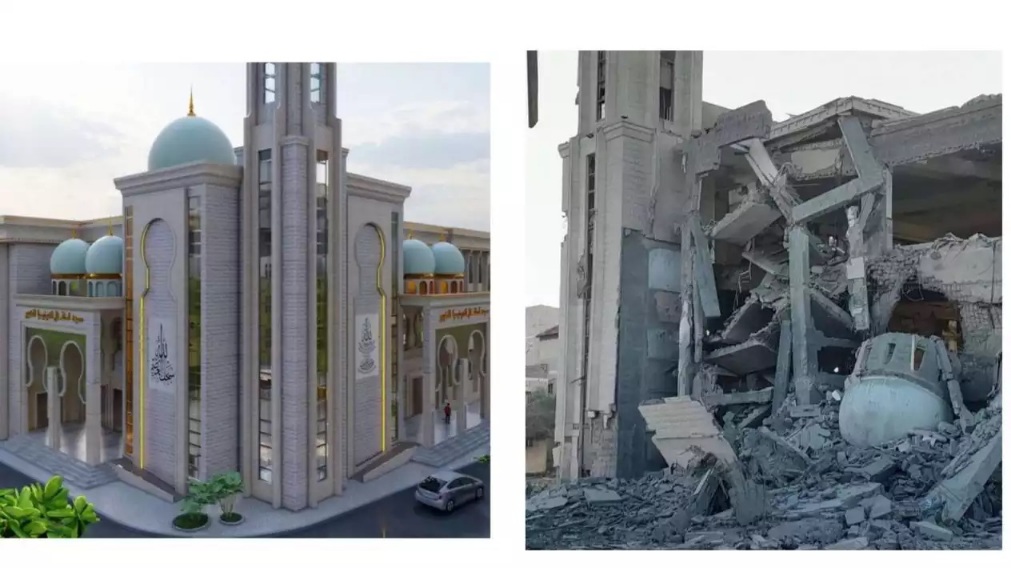The announcement of Israel’s ratification of the ceasefire agreement is a pivotal moment to end the two-year war in Palestine.
Nearly all nations have welcomed this ceasefire agreement. This includes various humanitarian organizations that have been providing aid and donations to Palestine.
One of them is the Palestinian Love Foundation (YKP).
“Praise be to God, this moment is a crucial turning point to immediately provide massive humanitarian aid and begin long-term recovery efforts for the people of Gaza, who have suffered from the genocide by Israel since October 7, 2023,” stated the Director of the Palestinian Love Foundation.
It is known that the Gaza War, which began on October 7, 2023, has killed more than 67,000 Palestinians and 1,200 Israelis.
Furthermore, the two-year war has devastated almost all public service buildings such as hospitals and mosques.
“The Indonesian Istiqlal Mosque, built in Khan Younis, Gaza, through public donations, was also destroyed by missiles from Israeli Zionist aircraft,” the director added.
Therefore, as an institution that has consistently helped Palestinians in Gaza since 2016, the Palestinian Love Foundation will act quickly to shift its focus from emergency response to recovery programs and infrastructure reconstruction.
“This is very important to restore life, stabilize the psychosocial condition of the Palestinian people in Gaza, and rebuild vital facilities that have been destroyed,” the director stated.
Rebuilding the Indonesian Istiqlal Mosque
According to the director, one of the focuses of the Palestinian Love Foundation’s reconstruction efforts will be rebuilding the Indonesian Istiqlal Mosque in Khan Younis, Gaza.
It was explained that the Indonesian Istiqlal Mosque was built on a 1,751 square meter plot of land with a building area of 940 square meters.
The Indonesian Istiqlal Mosque began construction in 2019 and was completed and inaugurated on February 22, 2022.
“The funds for building this mosque came from donations by the Indonesian public, collected by the Palestinian Love Foundation and the fundraising platform Sharing Happiness,” the director explained.
The presence of the Indonesian Istiqlal Mosque in Gaza is a symbol of the brotherhood between Indonesia and Palestine.
The naming of Istiqlal was inspired by the Istiqlal Mosque in Indonesia. Its inauguration was held in Gaza and virtually at the Istiqlal Mosque in Jakarta.
“As the meaning of the word ‘Istiqlal’ signifies independence, may God Almighty soon grant the blessing of independence to the Palestinian Nation,” the director emphasized.
In addition to accommodating 5,000 worshippers daily, the mosque had become a major post capable of storing humanitarian aid from Indonesia. This post facilitated donations for food, medical aid, winter needs, Ramadan charity, and other basic necessities coming from Indonesia.
This four-story mosque also contained special rooms designated as a Tahfidz school for Palestinian children, lecture halls, and a multipurpose hall that could be used for community meetings and gatherings of prominent figures.
“We hope that with the ceasefire and a permanent peace in Palestine, this Indonesian Istiqlal Mosque can stand again and become a symbol of true independence for the people of Gaza,” the director clarified.
In addition to rebuilding the Indonesian Istiqlal Mosque, the director added that the Palestinian Love Foundation will also assist in the reconstruction of health and education facilities in Gaza.
“Including other assistance that can help recover from trauma and meet the basic needs of our brothers and sisters in Gaza,” the director concluded.






